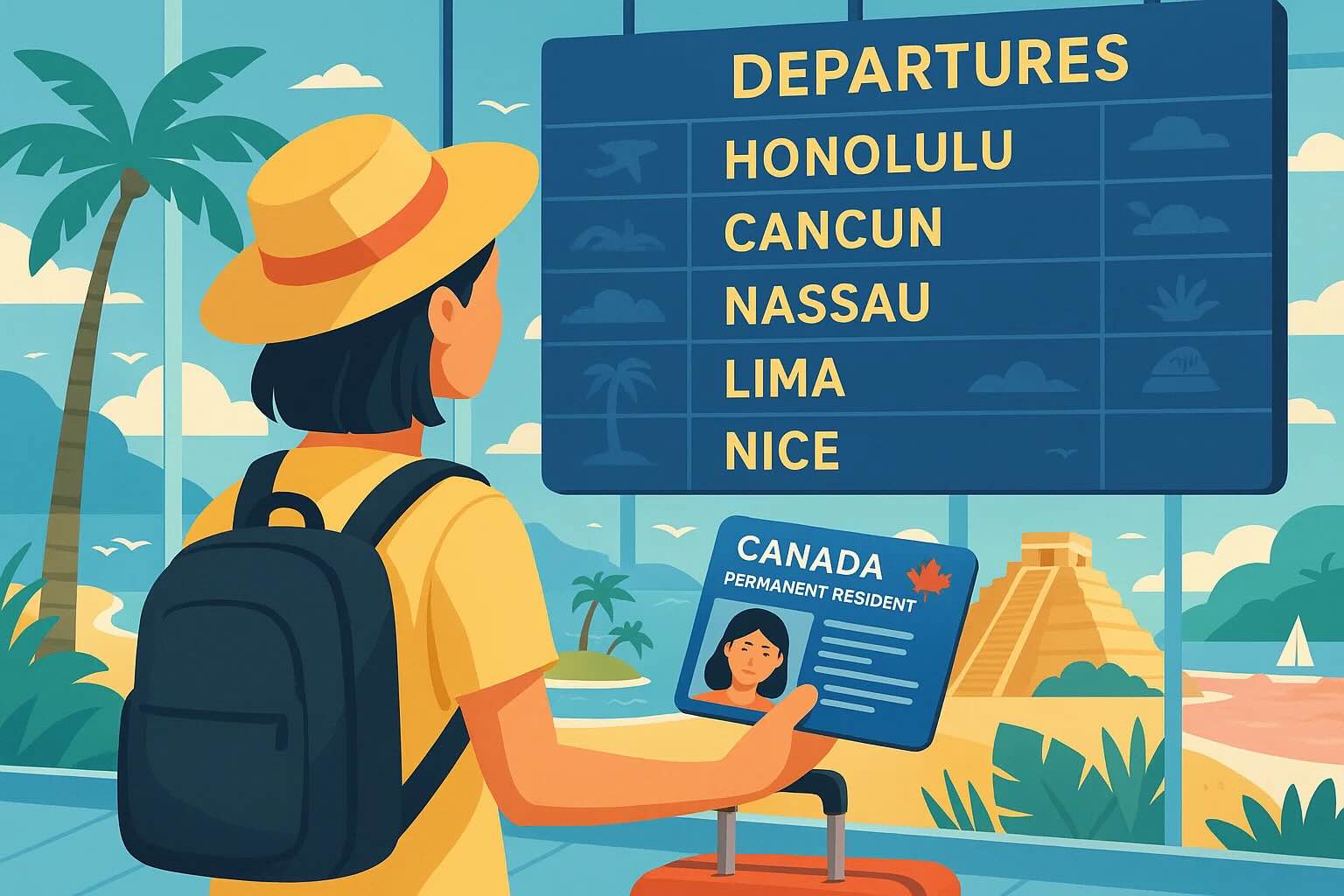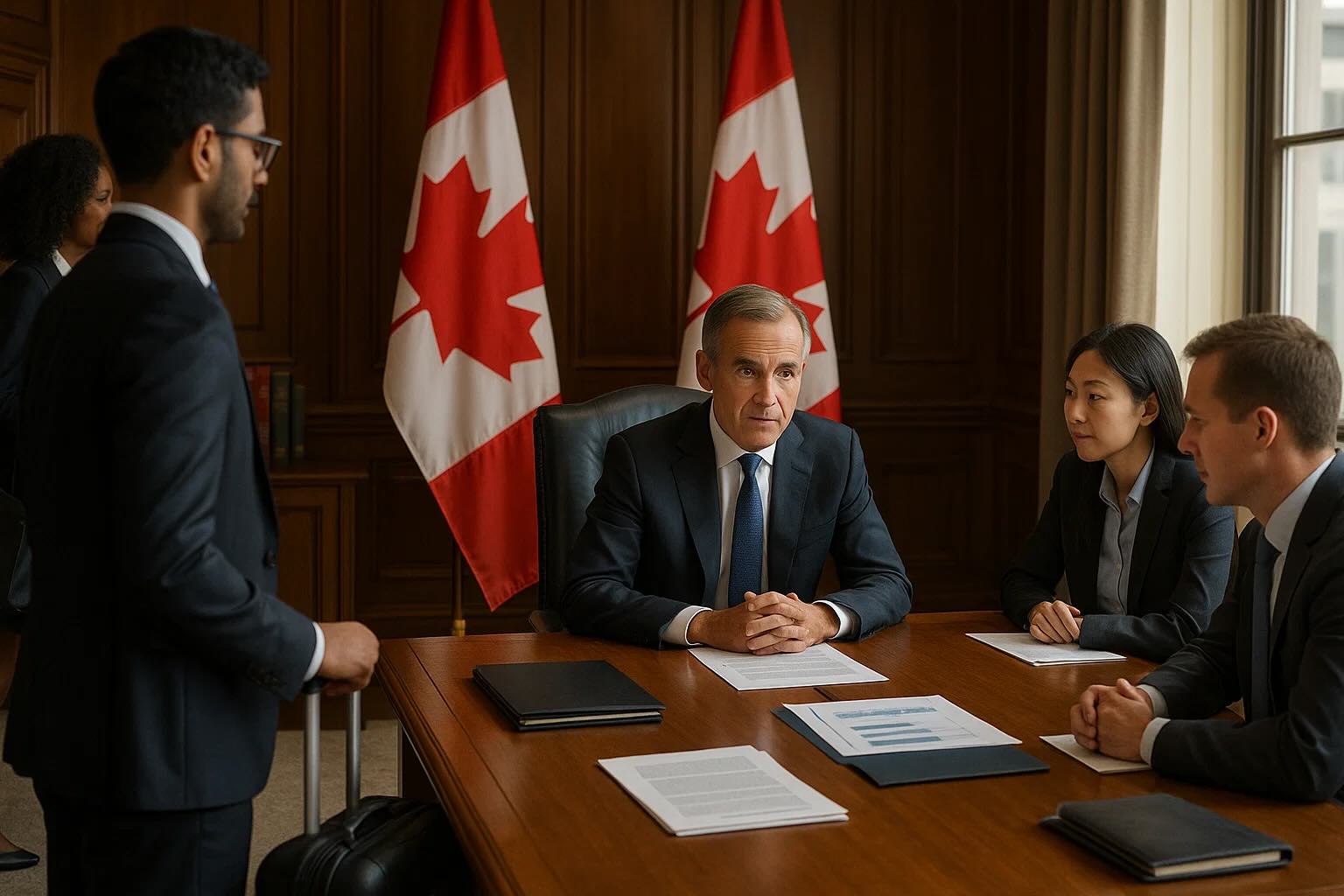For permanent residents traveling outside Canada, the Permanent Resident Card (PR Card) serves as both the official proof of status and the necessary document for entering Canada via commercial transportation such as planes, trains, buses, or boats. If this important card is unfortunately lost or stolen while you are abroad, you will be unable to use commercial means to return to Canada based solely on your status. In such circumstances, taking the correct action promptly is crucial.
Losing Your PR Card Abroad: The Alternative Travel Document for Returning – The Permanent Resident Travel Document (PRTD)
If you lose your PR card while outside Canada, stay calm. First and foremost, no matter where you are, you should immediately notify Immigration, Refugees and Citizenship Canada (IRCC) so they can deactivate your old card and prevent misuse.
Since applying for a new PR card requires you to be physically present in Canada, permanent residents who lose their PR card abroad must apply for a special travel document called a Permanent Resident Travel Document (PRTD). The PRTD is an alternative travel document designed for permanent residents who do not possess a valid PR card but need to enter Canada via commercial transportation. It is important to note that a PRTD is not a replacement for your PR card and is typically only valid for a single entry into Canada. If you require a multiple-entry PRTD due to special circumstances (its validity is usually limited by your passport's expiry date), you can include a cover letter explaining your situation when submitting your application, although IRCC does not guarantee that such requests will be granted.
Upon successfully returning to Canada using a PRTD, IRCC strongly advises you to apply for a new PR card as soon as possible once you are back in the country.
How to Apply for a Permanent Resident Travel Document (PRTD)
Applying for a PRTD involves specific steps and requires submitting necessary documentation:
- Prepare Required Documents: Gather all documents proving your identity and permanent resident status as outlined in the document checklist (IMM 5644).
- Obtain the Application Package: Download and carefully read the instruction guide (IMM 5529) and fill out all necessary forms. The main form for a PRTD application is IMM 5444.
- Fill Out the Application Forms: You can complete the forms online through the Permanent Residence Portal, or if accommodations are required, you may choose to fill out paper forms. Ensure all information is accurate.
- Pay the Application Fee: The PRTD application fee is $50 CAD. You must keep your payment receipt and include it with your application materials.
- Submit Your Application
- If applying online, submit electronically through the Permanent Residence Portal.
- If choosing paper application, you must submit the complete application package at a Visa Application Centre (VAC). Note that if filling out paper forms, you must click the "Validate" button near the top of the form before printing and signing it.
- Whether applying online or on paper, you must include the document checklist.
IRCC states that all PRTD applications are processed on a priority basis, but specific processing times vary depending on the location of submission and the complexity of the application, thus a standard processing time is not provided. Typically, non-urgent PRTD applications may take approximately two to eight weeks to process. If you encounter technical difficulties when using the online portal, you can contact IRCC using their web form.
Urgent Processing for Permanent Resident Travel Document (PRTD)
If you need to return to Canada urgently, typically within the next five days, your PRTD application may be eligible for urgent processing. Situations qualifying for urgent processing often include, but are not limited to:
- Having a job opportunity or needing to return for work related to your current employment;
- You or a family member experiencing serious illness, or a family member's death;
- Your PR card being lost or stolen while temporarily outside the country (which is the direct reason for applying for a PRTD);
- Being in a crisis, emergency, or vulnerable situation.
If your situation fits the examples above, or you believe your specific circumstances warrant urgent processing, you must explain in detail and provide supporting proof in your application. Select "Yes, my request is urgent" in the online portal, or clearly mark "Urgent" on the envelope for paper applications.
To be eligible for urgent processing, your application must include the following documents:
- Proof of your travel, showing your destination and travel dates (e.g., travel itinerary, copy of ticket);
- A copy of the receipt for your trip, including the date, amount paid, and payment method;
- A letter explaining the reason you require urgent processing;
- Supporting documents for your urgent processing request (e.g., doctor's note, death certificate, letter from employer).
Please be aware that even if your application meets the conditions for urgent processing and you submit the required documents, IRCC cannot guarantee that processing will be completed within your expected timeframe. The final decision rests with the immigration officer.
What to Expect After Submitting Your PRTD Application
Once IRCC receives your PRTD application, they will first check if the application is complete. Subsequently, they will assess your application to ensure you have met your permanent resident residency obligations and that you are still a permanent resident of Canada at the time of application.
During this process, IRCC may contact you to request additional supporting documents. If this happens, you should provide these via the IRCC web form by selecting the "Update or ask about your application" option and following the instructions.
Before a decision is made on your PRTD application, you may be required to attend an interview if IRCC needs more information from you, although most decisions are typically made without one.
If your application is approved, you will receive an email notification from IRCC with instructions on how and where to submit your passport or other travel document. IRCC will return your passport along with the issued PRTD after final processing is complete.
If your PRTD application is refused, you will receive a refusal letter explaining the reasons and providing further instructions, including details on your right to appeal.
Different Rules for Entering Canada Via a Land Border
It is worth noting that if you are returning to Canada by driving a private vehicle (one you own, borrowed, or rented) through a land border, the Canada Border Services Agency (CBSA) typically does not require you to show a PR card or PRTD to enter the country.
However, you will still be required to show other forms of identification to satisfy border officers of your Canadian permanent resident status. Acceptable identification documents may include (it is recommended to have multiple options readily available):
- Confirmation of Permanent Residence (COPR);
- Provincial driving license;
- Health card;
- Social Insurance Number (SIN) card;
- Vehicle registration (if you are crossing with your own vehicle);
- Employment letters, etc.
Be prepared to answer additional questions from border officers regarding your travel. Be honest, transparent, and explain your specific situation clearly.
What If Your PR Card is Lost or Stolen While You Are In Canada?
Unlike losing your PR card abroad, if your PR card is lost or stolen while you are within Canada, the process is relatively simpler. You can simply apply for a new PR card from within Canada.
You can submit a complete application through the Permanent Residence Portal, or if accommodations are needed, you can submit a paper application. You need to fill out the application for a new permanent resident card form (IMM 5444) and prepare all relevant forms and documents according to the document checklist (IMM 5644). The application fee is also $50 CAD. You can pay online and upload the payment receipt to the portal or include it in your paper application. If you have a police report or incident number associated with the loss or theft, IRCC recommends including a copy with your application.
Please note that while urgent processing may be possible for a new PR card application within Canada under similar emergency conditions as for PRTDs, the current minimum processing time, even for urgent cases, may still be approximately three weeks.
If your domestic application for a new PR card is approved, IRCC will typically mail the new card to you. There are a few important points regarding PR card delivery:
- PR cards can only be mailed to Canadian addresses.
- If you live in a rural area without direct mail-to-house service, the card can be sent to a PO box.
- IRCC will not mail your PR card to a third party.
- In some cases, IRCC may request that you instead pick up your new card at one of their offices. If so, you must bring your passport or eligible travel document, and the original versions of any documents you previously submitted as photocopies.
In conclusion, whether you lose your PR card inside or outside Canada, understanding the correct procedures is key to protecting your rights as a permanent resident. We hope this guide helps affected permanent residents resolve their issues smoothly and ensures their return to Canada or life within the country is not significantly disrupted.









